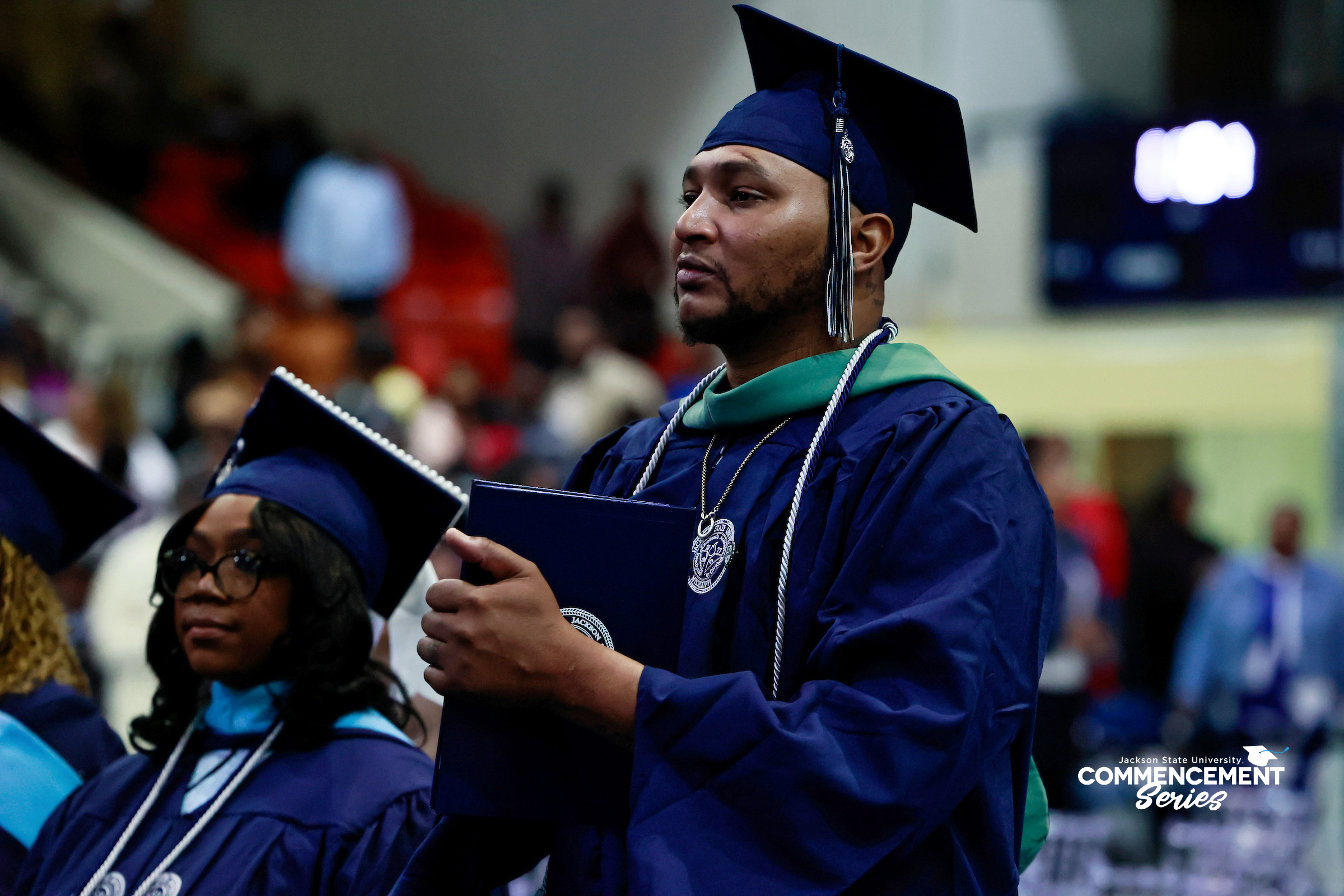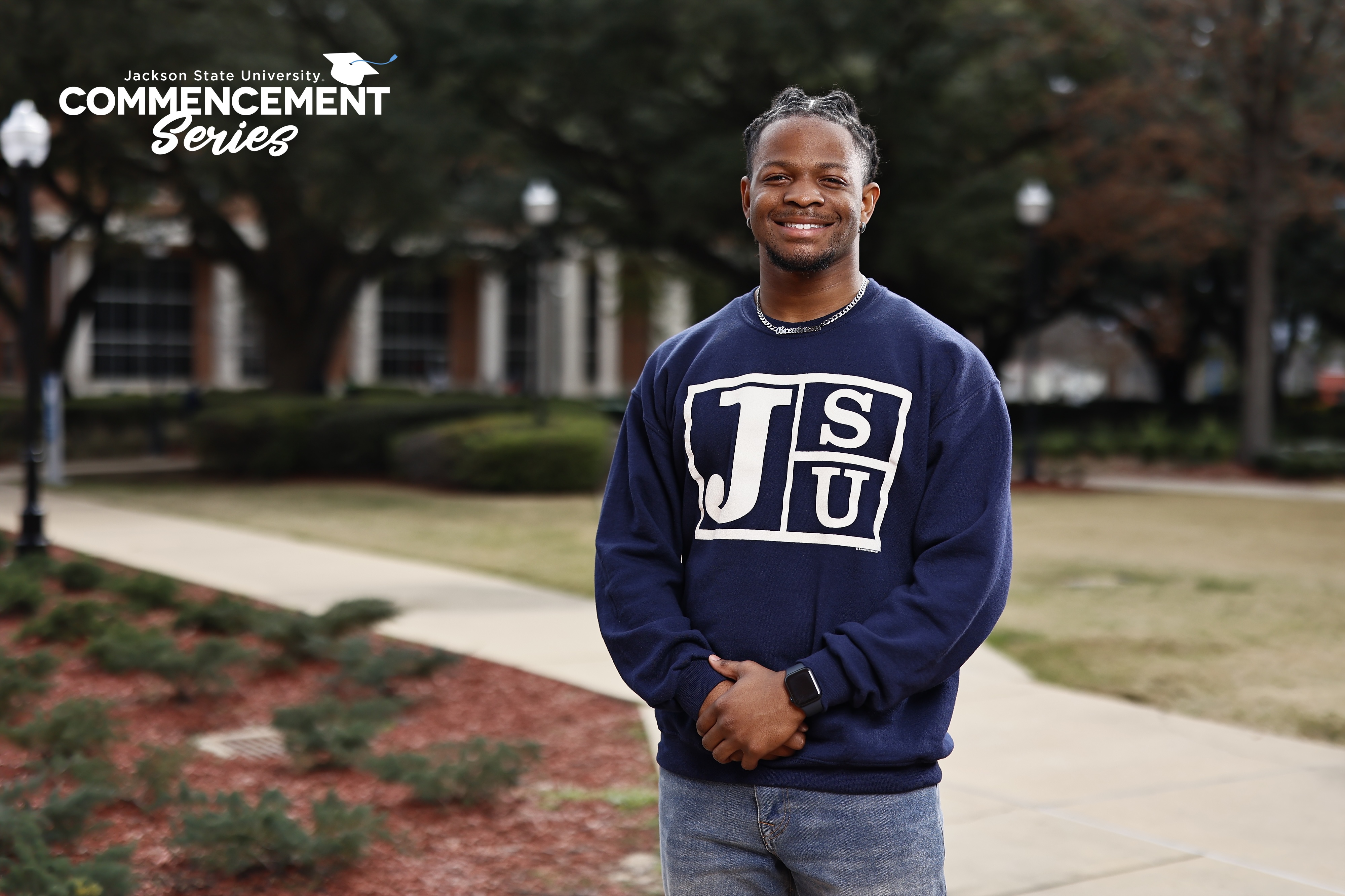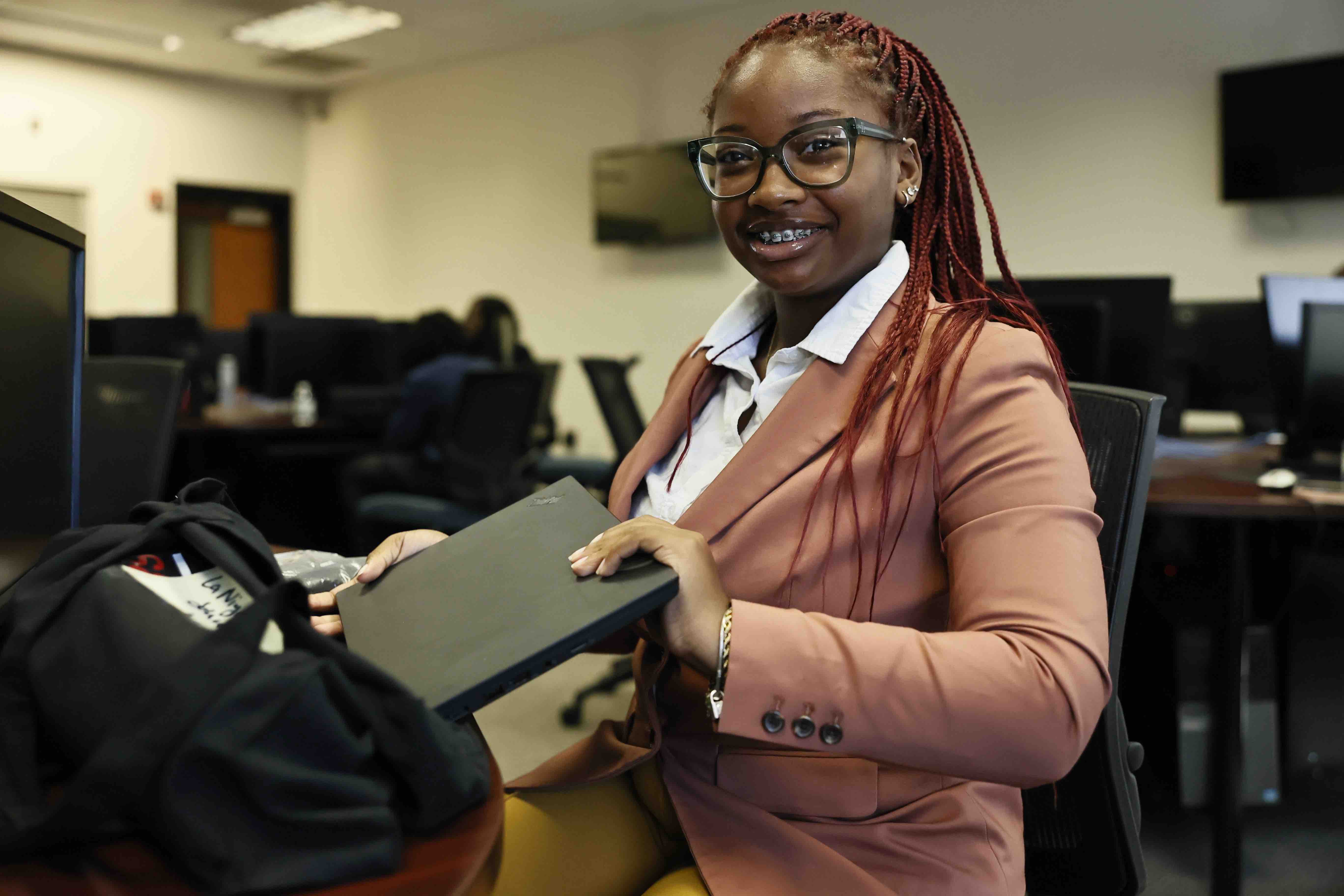Ilyasah Shabazz, the daughter of Malcolm X, laid a heavy challenge on Jackson State University students Monday, telling them that her father died in the cause of human rights and “you must take up the baton!”
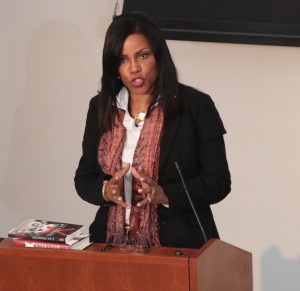
Keynoting the 2015 Black History Makers Forum titled Celebrating the Life of Malcolm X on the 50th anniversary of his death, Shabazz told an overflow audience at the Liberal Arts building that this was her first time to Jackson and first time to Jackson State University.
Sounding at times like her minister father, who was slain by an assassin in 1965, she questioned the moral values of a society that would kill unarmed black men but also the values of young people who would prefer riches over social justice.
“What happened to our humanity, to our compassion, to our purpose?” she asked.
She said her father stood up to injustices and thereby redefined human rights and history. She quoted her father as saying: “We demand our human rights as your brothers; we demand human rights as ordained by God.”
Her father, she said, did not have nearly the resources to reach others and shape public opinion as young people do today. But he provided a blueprint for equality and justice and made his mark on the world.
Her father, Dr. Martin Luther King Jr., Medgar Evers and Nelson Mandela “gave their lives for that, for you!” she said.
Look in the mirror, she added. “You are the true leaders you are looking for.”
“You are powerful beyond measure, and you must own it,” she said.
In her hourlong speech, Shabazz reminisced about growing up, including personal moments. For example, she said, that she was only three when her father was killed, but she had a ritual each night that when he came through the door from work, he would give her a cookie. She would eat it while he read books and papers.
After he died, her family stayed with actor Sidney Poitier and each evening she would look out the window and cry when her father wouldn’t come. “My mother couldn’t explain death to a toddler,” he said. So, her mother, Betty Shabazz, started leaving a cookie each evening by the door to wean her from crying.
Ilyasah Shabazz she also had a photo of herself as a child staring into her father’s eyes and he staring back. She still wonders, “What is he thinking?”
She heaped praise upon the achievements of her mother, who at age 20 found herself as a widow with four children and pregnant with twins on the way.
Her father is often shown shouting or angry, she said, but he was a loving and compassionate man. Those old film clips are of him reacting to the violence directed at peaceful, nonviolent protestors.
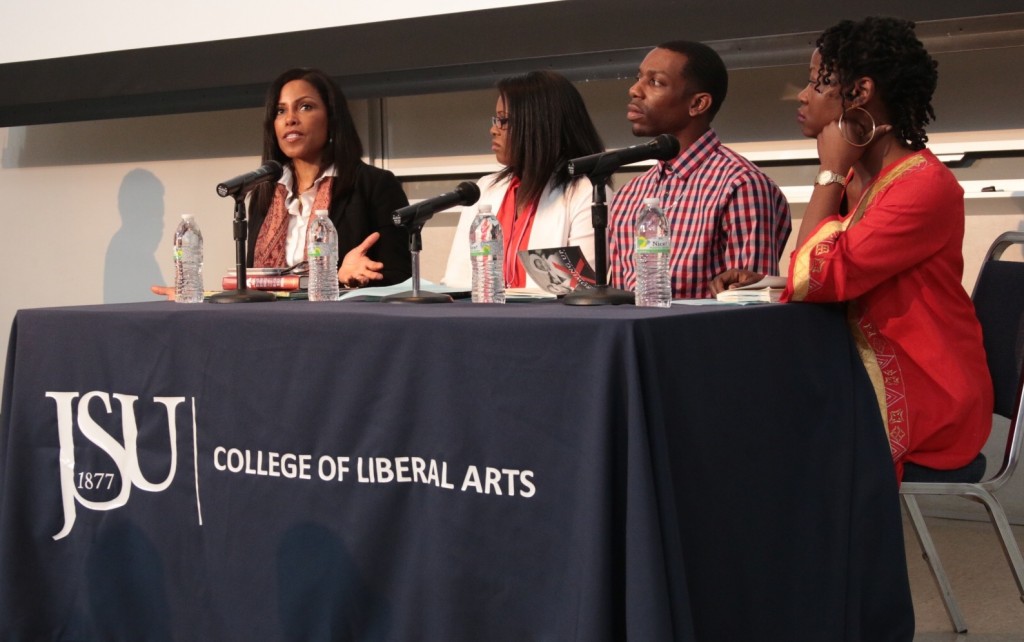
Shabazz also spoke on the importance of men treating women with dignity and respect, and women honoring men, as well. She said that men must protect and care for women and women should have patience with men.
A frequent topic in her speech and afterwards with a panel discussion by students, involved inaccurate presentations of blacks in history. “My father said only a fool will allow the enemy to teach its children,” she said.
While Jewish people teach their children about the Holocaust, she said, most black people are “clueless” about the “African diaspora.” Citing names of leaders and achievements in art, science, math and architecture, she quoted historical figures about the greatness of the civilizations in Africa.
Students owe it to themselves, she said, to research accurate black history where black people are not merely represented as slaves or as ignorant or backward, and “not discriminate against ourselves.”
“Today, it is your duty to ensure that their enslavement was not in vain,” she said.
Following her speech, she met with students, signed copies of her books, and was scheduled to tour local sites of historical importance to civil rights.
She was also slated to be the guest speaker at a Dinner Conversation with Reena Evers-Everette, daughter of slain civil rights leader Medgar Evers. It will be the first public conversation between the daughters of two human rights martyrs in Mississippi. Open to the public, it’s scheduled for 6 p.m. at the Student Center.
The conference is presented by the Fannie Lou Hamer Institute @ COFO (the Council of Federated Organizations) and the College of Liberal Arts.




